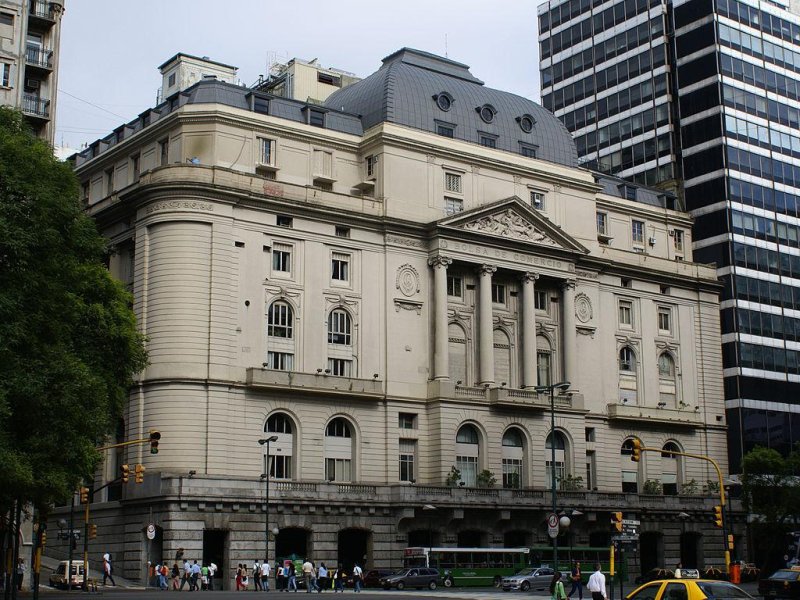Stocks at the Buenos Aires stock exchange fell sharply Thursday after the country defaulted for failing to service $13 billion of debt.(CC:Antonio Garcia)
BUENOS AIRES, July 31 (UPI) -- Argentina slipped into its second default in 13 years after officials and bondholders could not come to an agreement on how to service the country's debt.
Standard and Poor's announced Wednesday night the country defaulted on payment of $13 billion of its debt. International investment banks have been holding talks with the so-called holdout creditors to allow the country to resume servicing its debt.
"Default is not a mere 'technical' condition, but rather a real and painful event that will hurt real people," said Daniel Pollack, the U.S. mediator, in a statement late Wednesday. He added, "The full consequences of default are not predictable, but they certainly are not positive."
The default is expected to put immense pressure on the Argentine economy, which is already struggling to recover from the recession, and could lead to higher inflation and a weaker currency. Argentina currently has an inflation rate close to 40 percent.
The holdout creditors -- NML Capital and Aurelius Management -- have refused to restructure debt they hold from Argentina's last default in 2001. These creditors want $1.5 billion paid to them and have even blocked payments to other creditors.
The Argentine government and banks have been able to restructure 93 percent of its debt but the remaining creditors went to court in the U.S., which ruled last month that if Argentina can't pay the holdout creditors they cannot pay the restructured bondholders as well.
Economy minister Axel Kicillof met the holdout creditors this week in New York but said they had rejected an offer made by him.
"What the vulture funds want ... is that they be paid more than the 92.4 percent," said Kicillof. "This I have talked about many times and I have repeated it today before the funds suing us: it can't be done... can't be done."
Argentine banks attempted to assist the government by offering to pay off the holdout creditors and wait to be paid next year with government bonds, but it seems like the proposal came to nothing.
Argentina is reluctant to pay pay the holdout creditors for fear it could result in billions of dollars in additional claims -- money it doesn't have.










